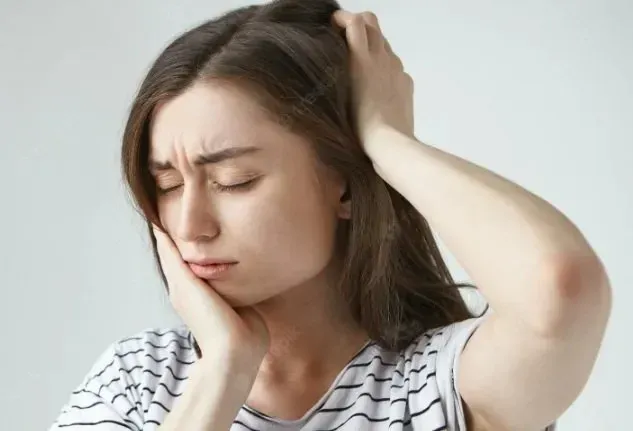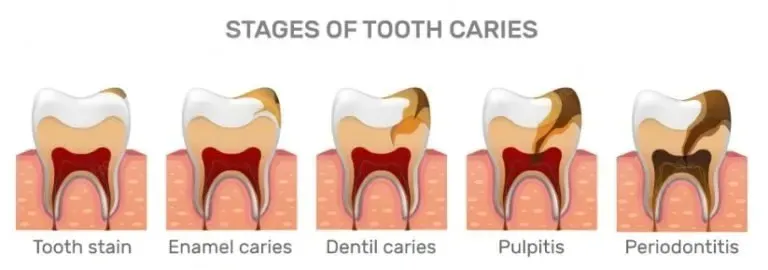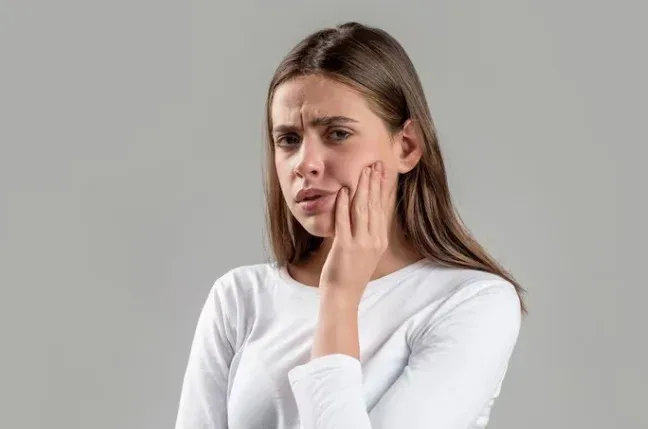Surrounding Teeth Hurt After Tooth Extraction? Here’s Why (And What to Do in 2026)
If you’ve recently had a tooth pulled and now the teeth around the extraction site are…
If you’ve recently had a tooth pulled and now the teeth around the extraction site are aching, you’re not alone. While some discomfort and swelling are completely normal following tooth extraction, many people are surprised when their surrounding teeth start to hurt days or even weeks after the procedure.
This neighboring tooth pain can stem from several causes—ranging from normal healing inflammation to more serious complications like infection, nerve irritation, or shifting teeth. In this comprehensive 2026 guide, we’ll explore why your surrounding teeth hurt after tooth extraction, how to tell if it’s normal or a red flag, and what you can do to manage the discomfort effectively.
Why Do Surrounding Teeth Hurt After Tooth Extraction?
When a tooth is extracted, it creates trauma not just at the extraction site, but also in the surrounding gums, bone, and neighboring teeth. Here are the most common reasons you might feel pain in the teeth next to your extraction:
1. Inflammation and Tissue Trauma
The extraction process involves pulling a tooth from its socket, which naturally causes inflammation in the surrounding soft tissues and bone. This inflammation can radiate to adjacent teeth, making them feel sore or sensitive to touch, temperature, and pressure. This is a normal part of the healing process after tooth extraction and typically improves within a few days to a week.
2. Pressure and Force During Extraction
During the extraction, your dentist or oral surgeon applies significant force to loosen and remove the tooth. This pressure can temporarily affect the ligaments and bone supporting nearby teeth, causing them to feel loose, tender, or bruised. Think of it like a minor sprain—it needs time to heal.
Why it helps: Numbs sore gums and surrounding teeth quickly, providing targeted relief during the healing phase.
3. Tooth Shifting and Movement
Once a tooth is removed, the gap left behind can cause adjacent teeth to begin shifting slightly to fill the space. This movement can create discomfort or an odd sensation in the neighboring teeth, especially when biting or chewing. Over time, this shifting can lead to bite misalignment if not addressed with a bridge, implant, or other restorative option.
4. Dry Socket (Alveolar Osteitis)
One of the most painful complications after extraction is dry socket, which occurs when the blood clot at the extraction site dislodges or dissolves prematurely. This exposes the underlying bone and nerves, causing severe, radiating pain that can affect surrounding teeth. If you’re experiencing intense pain that worsens around day three to five, contact your dentist immediately.
5. Infection
Bacterial infection at the extraction site can spread to surrounding tissues and teeth, causing swelling, redness, throbbing pain, and sometimes a foul taste or odor. If you notice these symptoms, especially if accompanied by fever, seek dental care right away.
6. Nerve Irritation or Damage
In rare cases, the extraction may irritate or damage a nearby nerve, leading to lingering pain, numbness, or tingling in adjacent teeth, gums, or even the lip and chin. This is more common with lower wisdom teeth extractions due to the proximity of the inferior alveolar nerve.
Is It Normal for Surrounding Teeth to Hurt After Extraction?
Yes, mild to moderate discomfort in the teeth surrounding an extraction site is normal and typically resolves within a few days to two weeks. However, you should be aware of warning signs that indicate a more serious problem.
When to Call Your Dentist
Contact your dentist or oral surgeon if you experience any of the following:
- Severe pain that doesn’t improve with over-the-counter pain medication
- Swelling or redness that worsens after the first 48 hours
- A foul taste or odor in your mouth
- Fever or chills, which may indicate infection
- Persistent numbness or tingling in the teeth, gums, or face
- Pain that radiates to the ear, jaw, or neck
If you’re dealing with extreme discomfort and can’t sleep, you may find helpful strategies in our guide on extreme tooth pain and sleep solutions.
Tooth Sensitivity Weeks After Tooth Extraction
Some patients report tooth sensitivity that lingers for weeks after an extraction. This can be concerning, but it’s often part of the extended healing process, especially if the extraction was surgical or involved a deeply rooted tooth.
Causes of Prolonged Sensitivity
Prolonged sensitivity in surrounding teeth can result from:
- Ongoing inflammation: The gums and bone continue to remodel for several weeks post-extraction
- Exposed dentin: If gum recession occurred during the extraction, nearby teeth may have exposed root surfaces that are more sensitive to hot, cold, and pressure
- Underlying dental issues: Pre-existing cavities, cracks, or gum disease in adjacent teeth may become more noticeable after extraction
- Dry socket or infection: As mentioned earlier, these complications can cause prolonged pain and sensitivity
If sensitivity persists beyond two to three weeks, schedule a follow-up appointment with your dentist to rule out complications and discuss treatment options such as desensitizing toothpaste, fluoride treatments, or dental bonding.
Why it helps: Formulated to block pain signals from exposed nerves and rebuild enamel protection over time.
Tooth Next to Extraction Feels Weird or Loose
It’s not uncommon to notice that the tooth next to your extraction site feels strange—perhaps loose, tingly, or just “off.” Here’s what might be happening:
Why the Adjacent Tooth Feels Weird
Temporary looseness: The extraction process can cause slight loosening of neighboring teeth due to the force applied and the loss of support from the extracted tooth. This usually stabilizes as healing progresses.
Shifting and movement: As the gap left by the extraction begins to close, adjacent teeth may shift, creating an unfamiliar sensation when you bite or chew.
Trauma during extraction: If the neighboring tooth was bumped or stressed during the procedure, it may feel bruised or tender for several days.
Pre-existing damage: If the adjacent tooth had decay, a crack, or a loose filling, the extraction may have aggravated the issue, making it more noticeable.
What to Do If a Tooth Feels Loose
If you notice significant looseness in a tooth next to the extraction site, contact your dentist promptly. They can assess whether the tooth is stable or if there’s an underlying issue such as gum disease, bone loss, or infection. In some cases, a splint may be used to stabilize the tooth while it heals.
Avoid chewing on that side of your mouth, maintain excellent oral hygiene, and follow your dentist’s aftercare instructions carefully to support healing.
How to Manage Pain in Surrounding Teeth After Extraction
Here are practical steps you can take to reduce discomfort and promote healing:
1. Take Pain Medication as Directed
Over-the-counter pain relievers like ibuprofen and acetaminophen can help manage inflammation and pain. Some patients find that taking Tylenol and ibuprofen together provides more effective relief. Always follow your dentist’s recommendations and dosage instructions.
2. Apply Ice Packs
Use a cold compress on the outside of your cheek for 15-20 minutes at a time during the first 24-48 hours to reduce swelling and numb the area.
3. Rinse with Warm Salt Water
After the first 24 hours, gently rinse your mouth with warm salt water (1/2 teaspoon of salt in 8 ounces of water) several times a day to keep the area clean and reduce inflammation. Be gentle to avoid dislodging the blood clot.
4. Eat Soft Foods
Stick to soft, cool foods like yogurt, smoothies, mashed potatoes, and scrambled eggs. Avoid hard, crunchy, or sticky foods that could irritate the extraction site or put pressure on surrounding teeth.
5. Maintain Oral Hygiene
Continue brushing and flossing, but be extra gentle around the extraction site. Keeping your mouth clean helps prevent infection and supports healing.
6. Avoid Smoking and Alcohol
Smoking can delay healing and increase the risk of dry socket. Alcohol can interfere with blood clot formation and interact with pain medications.
Why it helps: Contours to your face for targeted cold therapy, reducing swelling and numbing pain in surrounding teeth.
Long-Term Considerations: Preventing Tooth Shifting
If you’ve had a tooth extracted and don’t plan to replace it with an implant, bridge, or denture, be aware that surrounding teeth may gradually shift into the empty space. This can lead to bite problems, jaw pain, and difficulty chewing.
Talk to your dentist about tooth replacement options to maintain your bite alignment and protect the health of your remaining teeth.
Final Thoughts
Experiencing pain in the teeth surrounding an extraction site is a common part of the healing process, but it’s important to monitor your symptoms closely. Mild discomfort that improves over time is normal, but severe, worsening, or prolonged pain should be evaluated by your dentist to rule out complications like infection, dry socket, or nerve damage.
By following your dentist’s aftercare instructions, managing pain effectively, and staying alert to warning signs, you can support a smooth recovery and protect the health of your surrounding teeth. If you have any concerns or questions, don’t hesitate to reach out to your dental care provider—they’re there to help you heal safely and comfortably.







